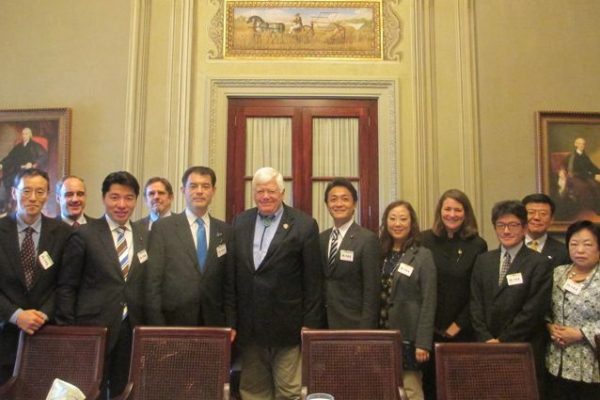Joint Diet-NGO Leaders Delegation on Humanitarian Assistance
Over the course of four days in Washington DC, a study team of Japanese Diet members and NGO leaders spoke with nearly 50 American and Japanese leaders about ways to strengthen US-Japan relations, and in particular about how the United States and Japan can partner effectively on humanitarian responses and disaster assistance. The delegation, which was co-organized by Mercy Corps and JCIE, included up-and-coming parliamentarians from Japan’s ruling and opposition parties and prominent NGO leaders engaged in international relief and development. Their program was unique in two ways. For the first time ever it brought together Japanese politicians and NGO leaders as fellow participants in an overseas delegation; plus, in addition to dealing with the overall state of US- Japan relations it included an in-depth focus on a single concrete area of potential cooperation.
While in the United States, the eight delegates met with senior Congressional members, White House officials, NGO leaders, and development practitioners to exchange views on how to improve responses to disasters, refugee crises, and development challenges. In the process, they also discussed models of US government-NGO coordination in responding to humanitarian crises in order to glean lessons for Japan. Toward the end of their program, on October 1, the group members were featured as speakers at the third annual Tadashi Yamamoto Memorial Seminar at the Council on Foreign Relations, where they assessed the role of Japanese NGOs and civil society both at home and abroad.
Findings & Recommendations
Delegation Members
DIET MEMBERS
SHINICHI ISA, Member, House of Representatives (Komeito)
MASAHIKO SHIBAYAMA, Member, House of Representatives (LDP)
KEISUKE SUZUKI, Parliamentary Vice-Minister of Land, Infrastructure, Transport and Tourism; Parliamentary Vice-Minister of Cabinet Office; Member, House of Representatives (LDP)
YOICHIRO TAMAKI, Member, House of Representatives (DPJ)
NGO LEADERS
KATSUJI IMATA, Executive Director, Japan NPO Center; Chair, CSO Network; President, Global Call for Action Against Poverty
HIROAKI ISHII, Executive Director, Japan Association for Refugees
KEIKO KIYAMA, Secretary General, JEN; Co-chair, Japan Platform
KUNIO SENGA, Japan CEO, Save the Children
The legislation that passed two weeks earlier to expand the role of Japan’s military was foremost in the minds of many of the US government leaders and Asia experts with whom the delegation met. There was broad consensus among Ameri- can specialists and policymakers that the security reforms are beneficial for US-Japan relations, and several influential Americans mentioned that they hope Japan will be able to dispatch more soldiers for peacekeeping operations.
However, both delegation members and US experts worried that an expectations mismatch may be developing. US leaders seem to think that Japan now has greater freedom to utilize its Self-Defense Forces than is actually permit- ted under the new legislation. Plus, there appears to be an assumption among US government leaders that Japan will continue increasing it security role, and many have been making plans on that basis. However, it is likely that Japan has gone as far as it will for the time being in strengthening its ability to respond militarily, and so care needs to be taken to avoid disappointment on the American side stemming from feelings that the United States continues to shoulder a dispro- portionate burden for maintaining security in the region.
A US-Japan Strategy for Asia
Several American experts noted that Japan and the United States have focused primarily on expanding hard security cooperation in recent years, but now that the security legislation is passed, there needs to be a greater emphasis on strategic cooperation on the types of nontraditional
security issues that eventually develop into security problems, including disaster risk reduction, environmental degra- dation, pandemics, and other development challenges. In fact, as one former senior US official noted, within the G7, the United States and Japan are now the two most closely aligned countries on issues related to development and humanitarian affairs.
In the eyes of many of the people the delegation met, working together on humanitarian and development issues will help flesh out the US-Japan alliance, demonstrating that the alliance is not solely about China and also giving Japan an opportunity to show that it is making international contributions that are commensurate with its wealth and leadership position. US experts also emphasized the fact that bilateral cooperation on nontraditional security issues should be leveraged in multilateral forums, too, whether through US-Japan coordination on G7 discussions of development, joint efforts in ASEAN-centric forums such as the ASEAN Defense Ministers Meeting Plus (ADMM Plus), or through exercises such as the Pacific Partnership. Several also noted that cooperation on development and humanitarian responses provides the United States and Japan with an important opportunity to reach out to China and engage it in trilateral initiatives.
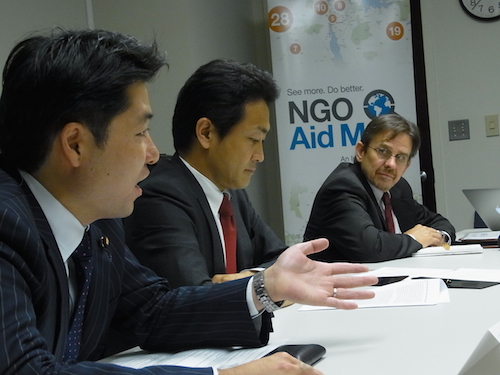
Rep. Shinichi Isa asking about the value that NGOs add to US humanitarian responses.
Humanitarian and Development Assistance and the Role of NGOs
In the group’s meetings it quickly became clear that US leaders have high hopes for stronger US-Japan partnership on humanitarian assistance, development, and other global issues. However, as one former high-level US official noted, despite all the talk about cooperation in this area, our governments are just now learning how to work together, after their first effort to operate in a truly joint manner in responding to Japan’s massive 3/11 disaster.
A number of US government officials argued that there is considerable room for bilateral cooperation, but it is essential that nongovernmental organizations (NGOs) are more effectively integrated into this process. In the United States, humanitarian responses generally are undertaken by two agencies: USAID’s Office of Foreign Disaster Assistance (OFDA) is the lead agency for disaster responses and the State Department’s Bureau of Population, Refugees, and Migration assists people displaced by conflict. Each of
these agencies relies heavily on NGOs to implement its programs—in fact OFDA operates almost solely through NGOs. Altogether, the US government channeled $1.2 billion through NGOs for humanitarian assistance last year, and billions more for development.
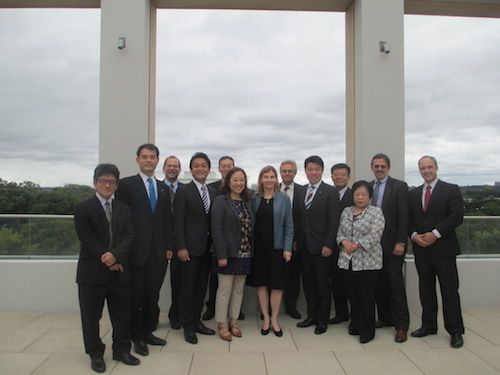
The delegation poses with Nancy Lindborg, president of the US Institute of Peace, and her colleagues.
As a result, US government agencies regard NGOs as “strategic partners,” a term that came up again and again when US officials described how they interact with NGOs and that struck a chord with the delegation members. Current and former US government officials explained that they found their collaboration with NGOs to be especially useful because NGO staff regularly provide them with frank and fresh insights about what they are seeing on the ground. In their eyes, NGOs also have an advantage in planning and implementing programs because they possess local community ties that government agencies cannot match, plus they can also operate in conflict zones and dangerous areas where the government cannot, such as Yemen or Syria. One former senior US official noted that the initial failures that the United States and the rest of the world had in responding to the Ebola outbreak offered evidence of the importance of NGOs—one reason the US government could not respond effectively at first was because there were barely any NGOs equipped to help with the response.
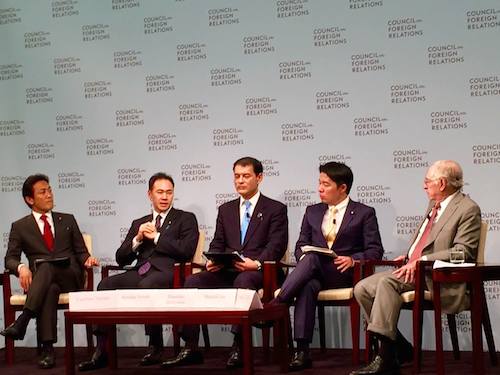
The four Diet members speak with Professor Gerald Curtis at the Tadashi Yamamoto Memorial Seminar.
Both the delegation members and US experts acknowledged that Japanese NGOs that are involved with development and humanitarian affairs have progressed enormously over the past decade, but they still suffer from severe limitations on their institutional capacity and have far to go to be able to operate on an even footing with Western NGOs, which can have thousands of staff and annual budgets in the range of $250 million to $1 billion. Several American NGO leaders suggested that the US experience in developing its NGO sector may offer valuable lessons for Japan. In the 1970s and 1980s, USAID and others undertook a strategic initiative to build up the institutional capacity of humanitarian organizations by gradually ramping up funding for their activities, and this is what has helped them develop the capacity to work closely with the government.
US experts felt that there are a number of opportunities to engage Japanese and US NGOs in broader bilateral initiatives, including in promoting disaster risk reduction in smaller Asia Pacific nations, pandemic preparedness, and development initiatives in places like Myanmar. Some also recommended that Japanese NGOs also be involved in joint military exercises carried out by the United States and Japan, in the way that US NGOs already are.
Moving Forward on Trade
The Trans-Pacific Partnership (TPP) was also a recurring topic in the delegation’s discussions. Negotiators from Japan, the United States, and 10 other countries were huddled in Atlanta to hammer out the details of the trade accord as the visit took place, and they announced a final deal on October 5, three days after the program concluded. Some Diet members and Congressional members shared their frustrations at not having been able to see many of the details of the TPP deal as it was being developed. However, others emphasized the strategic significance of the initiative, both as an essential element of the US rebalance to Asia and as a core pillar of the US-Japan relationship on which Prime Minister Abe was depending to reenergize his Abenomics package of economic reforms.
The delegation spoke with representatives of the following organizations:
US government: US Congress, White House/National Security Council, State Department & USAID
Think tanks: Council on Foreign Relations, Center for Strategic & International Studies, Sasakawa Peace Foundation USA, US Institute of Peace, etc.
NGOs and support groups:
InterAction, Save the Children USA, International Medical Corps, Global Giving, World Vision, etc.

